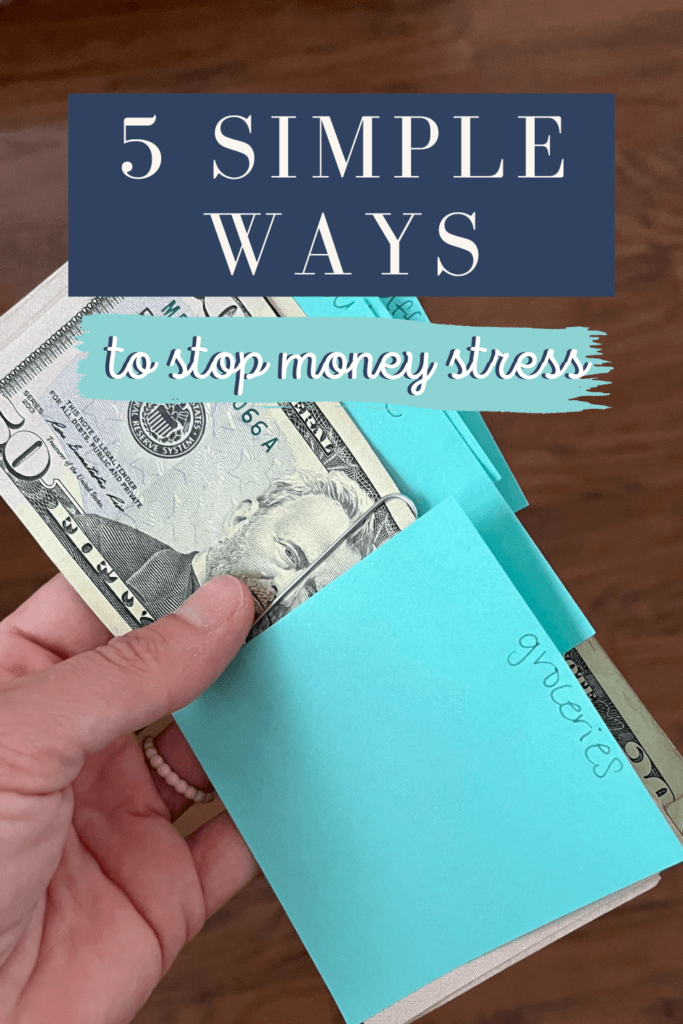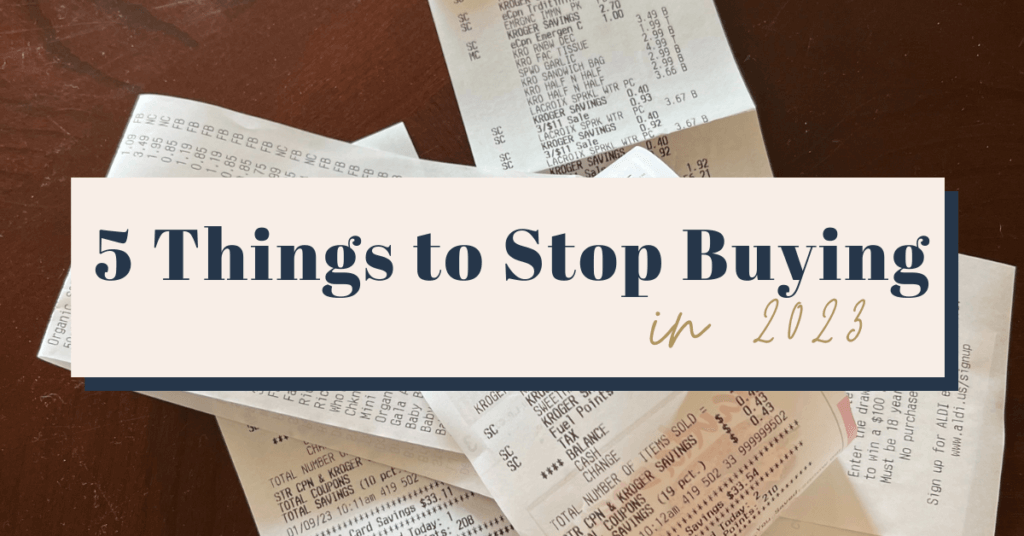
Money stress is real. According to an NBC survey, over 75% of Americans are concerned about money and feeling the strain of money-related stress. So how do we get over money stress? How do we protect our mental health and our wallets? Here are a few simple ways to get over money stress and start making progress with your finances today.
1. Track Your Spending for 30 Days
I know this seems daunting, but trust me. You need to do this if you haven’t been tracking your spending and/or following a budget. If you want money stress to go away you need to track your spending for the next 30 days. In today’s digital world, we are very disconnected from our money. It’s not like when we paid mostly in cash or check, where there was a physical, tangible act of spending money. Today we click a button, and our purchase magically appears on our doorstep within two days. We’ve become disconnected from our money, and it’s stressing us out.
To fix that, we need to get connected again to our money. And tracking our spending for 30 days is a fantastic way of doing just that. Set a reminder in your phone that once a week, you’ll update your spending tracker (use either a spreadsheet or a notebook – you need to participate in this act. Don’t rely on software to tell you). Update your spending tracker from the previous week and repeat this process for the next four weeks.
The goal of this step is to get us re-connected to our money. The only way to stop money from ruling over us is to put ourselves back in the driver’s seat, and this is step one.
2. Create a Budget
You knew this one was coming. Yes, you need a budget. No, it doesn’t have to be complicated. Let’s keep this simple.
- Start with what you know: Write down your current checking account balance.
- Subtract what you know: Subtract all the bills due between now and your next payday from your current checking account balance.
- Subtract your essentials: After subtracting the bills you know you have coming up, subtract the essentials you have coming up between now and your next payday. So subtract out your savings, debt payoff, estimated groceries, transportation costs, tithe, etc.
- Subtract out your extra stuff: Next, look at your social calendar – what’s coming up between now and payday that you must pay for? Hair appointment? Drinks with friends? Subtract out your estimated costs.
- Rinse and Repeat: Once you get paid again, repeat this process. Add what you get paid to your new current checking account balance and start the process over.
- Make sure that you make adjustments as you spend money. If you spend more or less at the grocery store, record that. This will help you keep a correct running total.
There you have it! Easy peasy. Okay, I know it’s easy to create a budget, but difficult to stick to it. And that’s okay. The key is to keep trying and not to give up!
3. Save Like Your Life Depends On It
Here’s the thing. As I mention in my book, you’re tempting fate when you go through life without a safety net. And your safety net? It’s your Emergency Fund. Your Emergency Fund is that beautiful savings account that’s there for you when life jumps up and smacks you in the face.
If you don’t already have at least one month’s worth of living expenses, save up in an Emergency Fund today is the day to start! Seriously. This is one of the most important accounts you can have. No one will go into your bank account and build up your Emergency Fund for you. You have to be the one to do it. So save like your life depends on it because it does!
4. Dump Debt
Debt is like an anchor – it drags you down. It keeps you from getting ahead and even pulls you further behind. So it’s time to kiss debt goodbye. Start with your smallest balanced debt and work your way up to the largest balanced one. Throw every extra penny (and I do mean every extra penny) towards that first debt on your list until it’s gone. Then “snowball” that minimum payment you were making into the next debt on your list. And continue from there until all the debts are gone.
I know that my explanation may make this process sound scary or overwhelming or like it can’t be done. But trust me. We paid off just over $55,000 of consumer debt on my husband’s $47,000 a-year salary in just over two years. I know firsthand how hard it is to pay off debt, but I also know that it’s 100% possible. The freedom of no longer having to make payments to others is incredible. Here’s more of my family’s story of becoming debt-free.
5. You Need to Stop Chasing Dreams that Aren’t Yours
Okay, the very last way to get over money stress is to stop chasing other people’s dreams. I know you might not think that you’re doing it, but the reality is we all fall into this trap from time to time. We see other people doing amazing things and want in on the action. And there’s nothing wrong with that. The problem happens when we start chasing things that aren’t really meant for us. When you sit down and make your goals are you mimicking anyone you follow online with the goals you set? Are your goals realistic for your stage of life? Heck, do you even want to achieve that dream?
These are important parts of the puzzle. We can’t get over money stress until we figure out our dreams. So take some time this week and dream. Think through those dreams and check yourself. Make sure you’re not accidentally pursuing something that isn’t really good for you in the end.
OTHER POSTS YOU MAY ENJOY






Leave a Reply